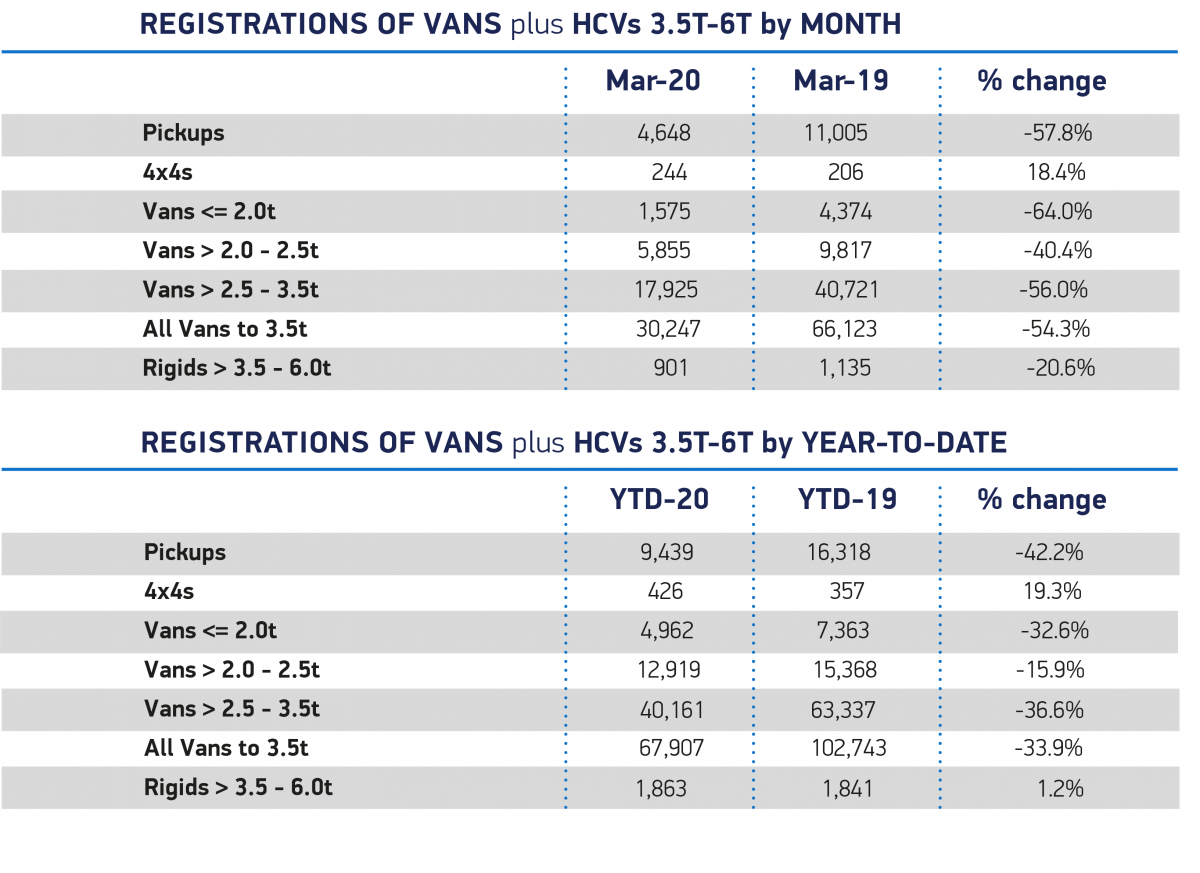- UK light commercial vehicle (LCV) market down -54.3% in key plate-change month.
- Just over 30,000 vans hit UK roads, as lockdown measures come into force and dealers close.
- Demand down across the board with most segments experiencing double-digit declines.
SEE LCV REGISTRATIONS BY BRAND
DOWNLOAD PRESS RELEASE AND DATA TABLE
The UK new light commercial vehicle (LCV) market fell -54.3% in March amid nationwide lockdown measures in response to the coronavirus crisis. According to the latest figures released today by the Society of Motor Manufacturers and Traders (SMMT), registrations more than halved compared with March 2019, with just 30,247 vans bearing the new ’20 number plate joining the roads.
Demand fell in double digits across most segments, with only the small volume 4×4 sector experiencing an 18.4% increase. Pickups and smaller vans weighing less than 2 tonnes saw declines of -57.8% and -64.0% respectively. Larger vans weighing more than 2.5-3.5 tonnes made up the bulk of registrations, but were down -56.0%, with 17,925 units registered. Performance year-to-date is down -33.9%, rounding off the weakest first quarter since March 2012.1
Mike Hawes, SMMT Chief Executive, said,
The commercial vehicle market is a barometer for the wider economy so March’s decline to the lowest level in more than 20 years is stark evidence of a crisis of truly unprecedented proportions.
There is no doubt that demand will recover once we overcome the challenge that lies ahead, however, given we do not yet know how long this will continue, government must continue to do everything possible to safeguard the sector so it is ready to help operators and the entire country get back to business when that time comes. Commercial vehicles are keeping supermarket and pharmacy shelves stacked and emergency services running – our reliance on this critical sector is being felt now more so than ever before.
During the coronavirus lockdown, commercial vehicles have been put to use to support crucial sectors. From providing support services for NHS trusts, local charities and foodbanks across the country, to sharing capacity to ensure grocery and pharmaceutical sectors can keep up with demand, the commercial vehicle sector is determined to help get the country through this crisis.
Notes to editors
1 – Year-to-date volume for March 2012 – 61,688




